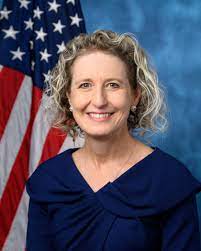WASHINGTON, DC — Should VA’s Office of Accountability and Whistleblower Protection (OAWP) be given more authority in order to better conduct investigations and track enforcement recommendations, or should it be done away with entirely?
Both of these options are being discussed by legislators and veterans’ advocates, highlighting both the need for better whistleblower protections for VA employees and how damaged OAWP’s reputation is only 5 years into its existence.
OAWP was created by President Donald Trump through an executive order in April 2017. Its mandate was to investigate reports of whistleblower retaliation, as well as accusations of misconduct against senior VA leadership.
Two years into its existence, a VA Office of Inspector General (OIG) report found that, not only was the office not properly investigating cases, it was allowing senior leadership to intervene, resulting in further whistleblower retaliation. It also accused former OAWP Director Peter O’Rourke of actively participating in retaliation against a VA employee.
OAWP has since restructured its processes and has worked to rehabilitate its image, though some question whether even optimum results would be worth the effort.
“It’s broadly accepted that the first few years of OAWP’s existence were an absolute failure. At best OAWP was a completely infective organization, at worst it was a tool that was used to retaliate against the same whistleblowers it was tasked with protecting,” declared VA Oversight Subcommittee Chair Rep. Jen Kiggans (R-VA) at a hearing on the subject last month. “I do not doubt that OAWP has many good employees attempting to make things right. … [However] many VA employees I engage with do not trust OAWP and as a result they are hesitant to engage with the office.”
Kiggans noted, as many have in discussions around OAWP, that an organization already exists to conduct investigations into VA whistleblower retaliation against federal employees—the Office of Special Counsel. Created in 1979, the OSC’s mandate was expanded to cover VA employees in 1994. For the last five years, OSC and OAWP have had many overlapping duties, with VA employees having a choice of which agency they turn to.
“In 2022 OSC negotiated favorable results with agencies in 12.5% of its personnel practice cases,” Kiggans said. “OAWP only recommended discipline n 3.4% of its cases.”
‘Juice Worth the Squeeze?’
She added, “I know OSC has had decades to work out the kinks, but I’m wondering if OAWP’s juice is worth the squeeze.”
Acting Assistant Secretary for OAWP Bruce Gipe defended the office, saying, “In 2019 when the inspector general released his report, OAWP was an agency in crisis. That is no longer the case. We have implemented the IG’s recommendations and made significant improvements.”
“In 2021, VA management only took 32% of OAWP’s discipline recommendations. This year, VA has accepted every recommendation,” Gipe said.
OAWP has also significantly improved the speed of its investigations, going from an average of 251 days to investigate a claim in 2021 to 82 days this year, he added.
The director of OAWP’s Investigations Division, Eric Calhoun, also pointed out that OAWP’s mandate is broader than OSC when it comes to protecting whistleblowers and recommending changes at VA.
The burden of proof for whistleblowers to prove misconduct can be very high, Calhoun explained. But, even if they don’t meet that threshold, OAWP still has the ability to make sure senior leaders are not targeting that employee.
Veteran and VA employee advocates acknowledge OAWP’s improvements but are worried that, without legislation to make those improvements permanent, the agency could still backslide. A common refrain from panel members at the hearing was the need for OAWP to have independent legal counsel separate from VA. Currently, the office uses VA’s Office of General Counsel, which some witnesses pointed out is chiefly concerned with protecting the department.
“I do think independence is the cornerstone for a whistleblower office to be able to be effective and do its job and be a safe place for whistleblowers to go,” testified Samantha Feinstein, international director of the Government Accountability Project.
Others would prefer to see OAWP cede the investigative role entirely to OSC.
“At the end of the day, the most important variable for any federal agency or department may be cultivating a culture of excellence and accountability—both for employees and for supervisors,” Tristan Leavitt, president of Empower Oversight told lawmakers. “OAWP would likely be best situated to contribute to such a culture, if investigating whistleblower retaliation was left to the far experienced Office of Special Counsel and OAWP focused on the big picture of addressing trends at the agency.”



